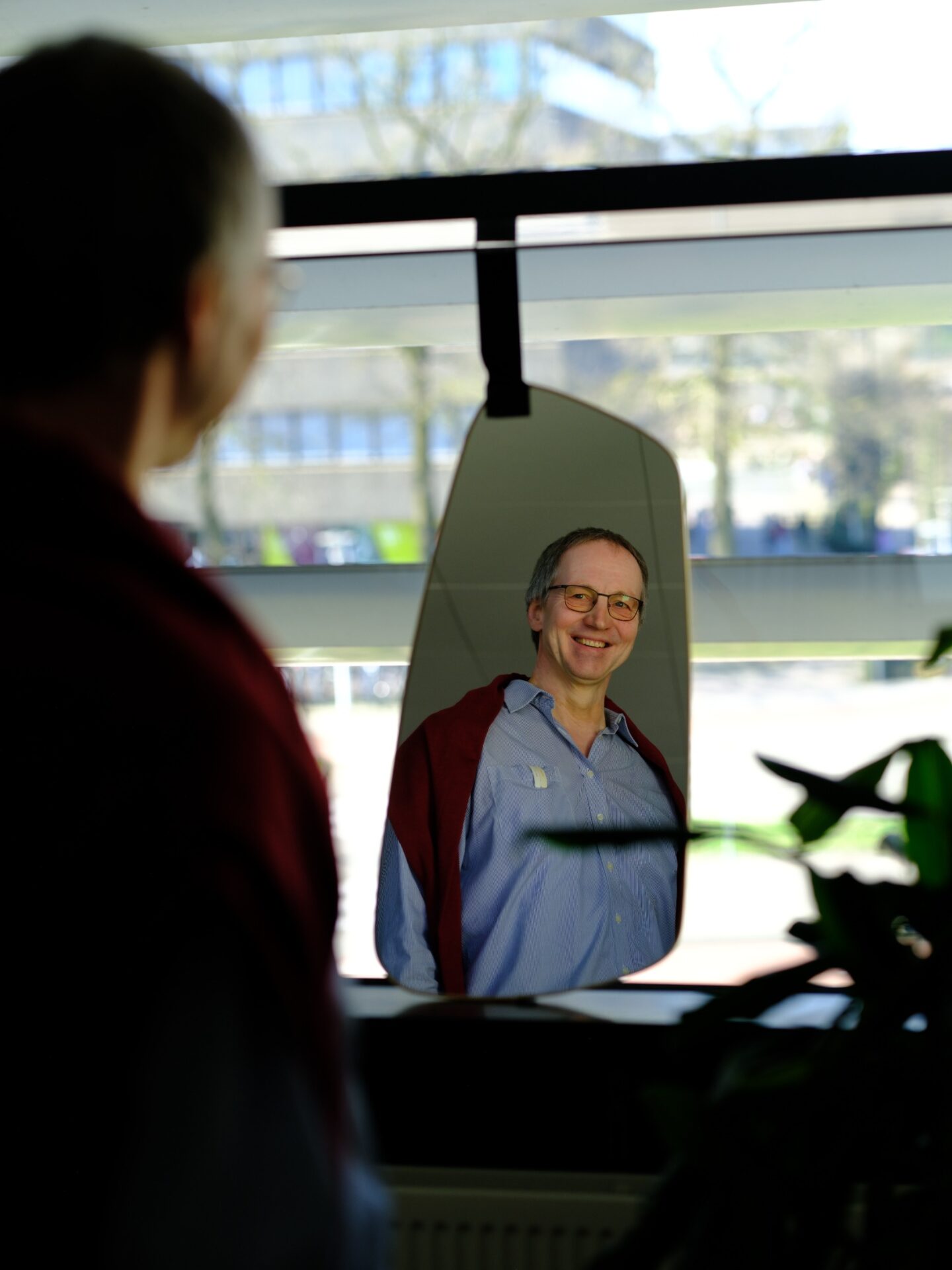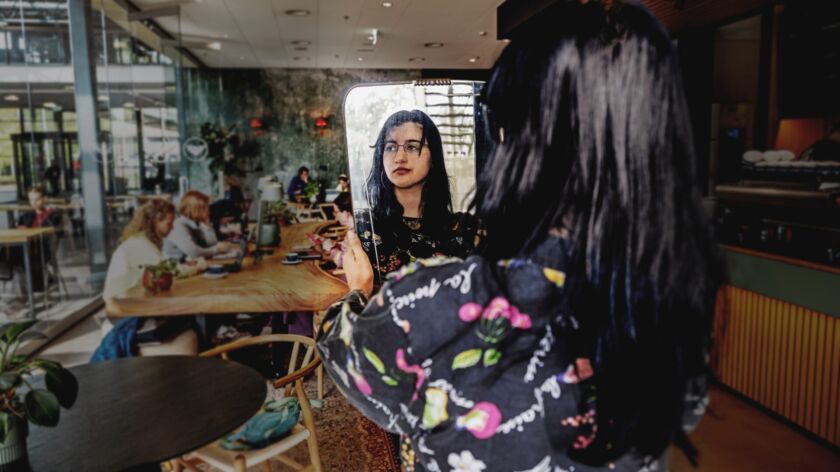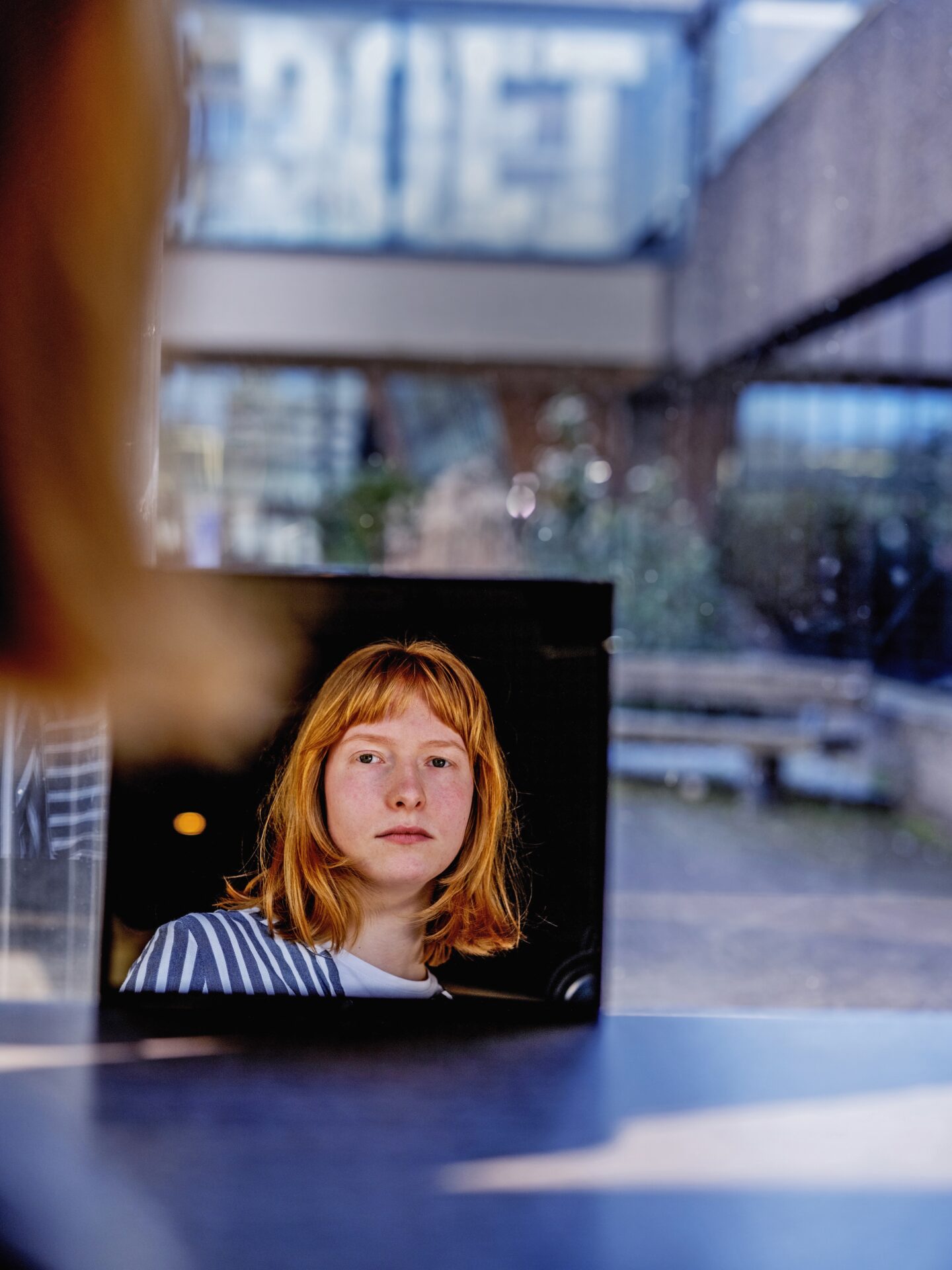They are not using AI: ‘Avoiding it is actually really easy’
-
Charlie Chowdhry. Foto: Duncan de Fey
It’s not easy for students or scientists to completely avoid AI. Some still try. They worry about AI’s energy consumption or have ethical concerns. ‘I want to communicate with real people.’
Charlie Chowdhry (24) is a Philosophy student
‘I refuse to use ChatGPT. During a group assignment for my studies, we had to ask something to ChatGPT. I asked my friend to do it for me. My conscience just doesn’t allow it. I think it’s similar to a vegetarian who doesn’t want to eat food from a griddle that’s been used to cook meat. There are still traces left behind.’
‘AI is one big plagiarism machine’
‘I have several objections to using generative AI. First and foremost, I find the environmental argument very important. Asking a chatbot something consumes large amounts of electricity and water. But I also object to the exploitation and plagiarism involved in training these kinds of language models. It’s essentially one big plagiarism machine, and for that reason I find it unethical to use.’
New Vox
This article is from the new edition of Vox, which is entirely dedicated to AI. In this magazine, you’ll find everything about the impact of artificial intelligence on education, research, and student life. Did you know, for example, that ChatGPT has some pretty interesting ideas for a student-style day in Nijmegen?
‘Personally, I really love writing. It took me many years to develop my writing skills. In my opinion, learning to write well is something you can and should spend your whole life doing. Handing over a writing assignment to a language model, as I see many fellow students do, hinders your own development. That can cause lifelong damage.’
‘I don’t use AI tools to search for literature or create bibliographies either. It takes some time to learn these kinds of skills, but in the end, I think it’s actually faster to do it yourself. Some of my friends use a website to generate a reference list for them, but they usually have to go over it and correct it anyway.’
‘We need to resist the fatalistic idea that we can no longer avoid GenAI. That’s why I want to show that you can absolutely have a successful career without using generative AI.’
Pia van de Schaft (22) is a History student
‘Students don’t use AI just because they’re lazy. More often, it’s because they think what they’ve written isn’t good enough. That makes it understandable to turn to AI. Someone who isn’t confident in their writing skills will probably think AI can do it better.’
‘Writing isn’t just about sentence structure or readability. Writing is about critical thinking. Every sentence is a decision based on the writer’s thought process. I don’t think AI can replace that thinking, because every writer’s way of thinking is unique.’
‘It would be naïve to think that AI will disappear just because I wish it would’
‘And even if AI could mimic a writer’s voice, to me, writing is a form of human interaction. For example, when I dive into a text, I automatically dive into the author and their thoughts. Why would we want to replace that human interaction with an AI interaction? Why would we want to take the humanity out of what we do at university?’
‘Personally, I avoid AI, and it’s actually really easy. It just means I work the way we all did a few years ago: I search for my own literature, read it, and reflect on what I find interesting. And I talk a lot with the students and teachers around me. Honestly, the opportunities at our university are better than AI will ever be.’
‘It would be naïve to think that AI will disappear just because I wish it would. AI will be part of the future, I know that. That mostly means we have to make sure it doesn’t harm our society.’
Meike Wartenbergh (19) is a Sociology student
‘I’ve never found AI appealing. When I was in high school, my history teacher showed us the first versions of ChatGPT and completely tore it apart. So I never thought: hey, let me try that. Later, I also learned about all the negative aspects of AI, like the stereotypical datasets. If you ask AI to generate an image of a cleaning lady, you’ll probably get a woman of color. And AI is of course very bad for the environment, cooling those massive computers requires a lot of water. I never want to use it.’
‘Companies are going to get everyone addicted’
‘But I’ve noticed lately that AI is everywhere. It’s in every program – Word, Google, various chatbots, you name it. It’s AI this and AI that. At this point, I feel like they’re just making things up. I want to communicate with real people. I want to do my own research and think with my own mind.’
‘Someone told me that companies are offering lots of programs for free now so everyone starts using them. But by the time people have become dependent on AI, those companies will start charging, or charging more. They’re going to get everyone addicted, and I find that really scary. We humans have so much knowledge, and now it feels like we’re letting computers do the simplest tasks for us. We’re not thinking anymore – that’s boring.’
‘And some things are just weird. I was playing a game on my phone recently and got an ad: “Scan your room and let AI clean it for you.” I was so surprised I took a screenshot. I was like: this can’t be real, right? We’ve come this far, and now we’re scanning a room and letting computers tell us how to clean it? I found that so dystopian. Is that really where we are now?’

Frank Bohn is a associate professor in international economics
‘I have to admit, I only found out about ChatGPT after it was already out in the open, at a department meeting. That must have been around 2022 or 2023, shortly after it came out. It’s not like I’m unequivocally critical of artificial intelligence. But I do think generic AI – the AI used for writing articles or producing images – has several drawbacks.’
‘One thing that I find worrying, for example, is that AI fakes are getting better and better. You can just put people in compromising situations – in photos or videos. And AI can also reinforce conspiracy theories. Because what does an AI tool do? It gathers information. If there’s an overwhelming amount of information that supports conspiracy theories, it can look like those theories are true – and there’s no human to check it.’
‘AI can produce anything, and you have no way of knowing what’s true and what’s false’
‘That can have a huge destabilizing effect on democracies. Political economy is one of the fields I work in, so I see the dangers of that. With Elon Musk saying that you shouldn’t check anything any more, and Mark Zuckerberg going in the same direction, that means “anything goes”. AI can produce anything, and you have no way of knowing what’s true and what’s false.’
‘Until recently, I have not used artificial intelligence at all. Perhaps I should make more of an effort to use it because it probably makes some tasks easier. My son studies economics at the University of Heidelberg, and he uses ChatGPT a lot. He argues that it helps him answer and understand specific questions. If you use it that way, it can be fantastic. The same applies to literature research.’
‘I think at the moment you can still get around without using AI. But in a few years’ time, that will definitely change.’








